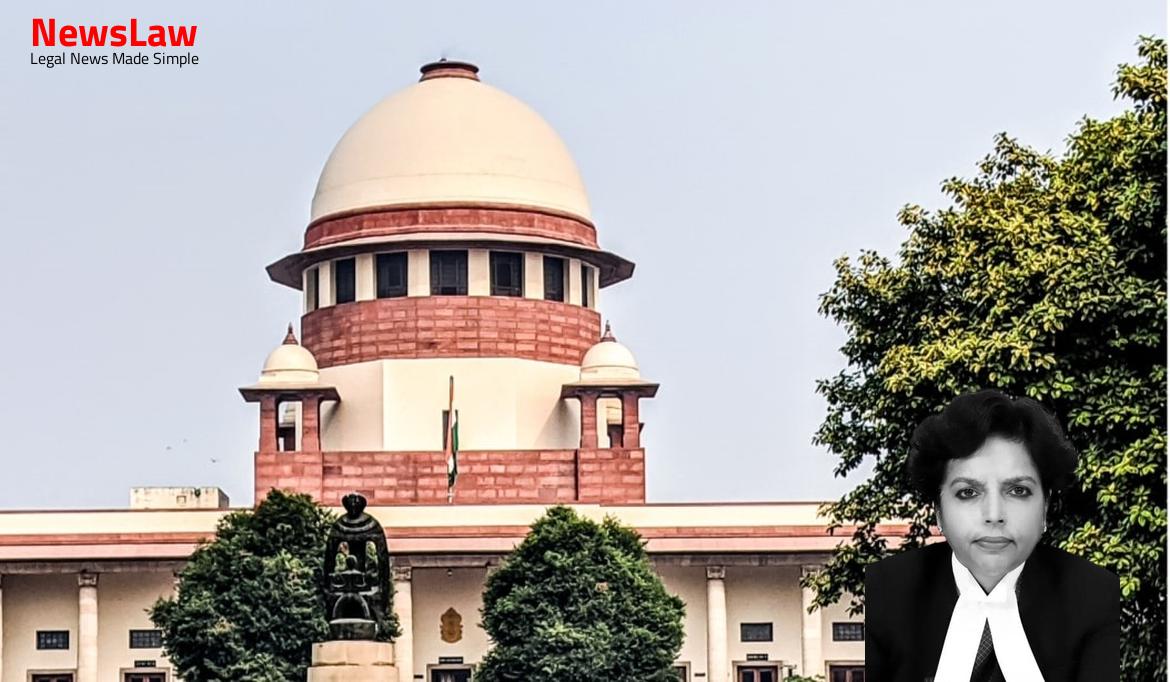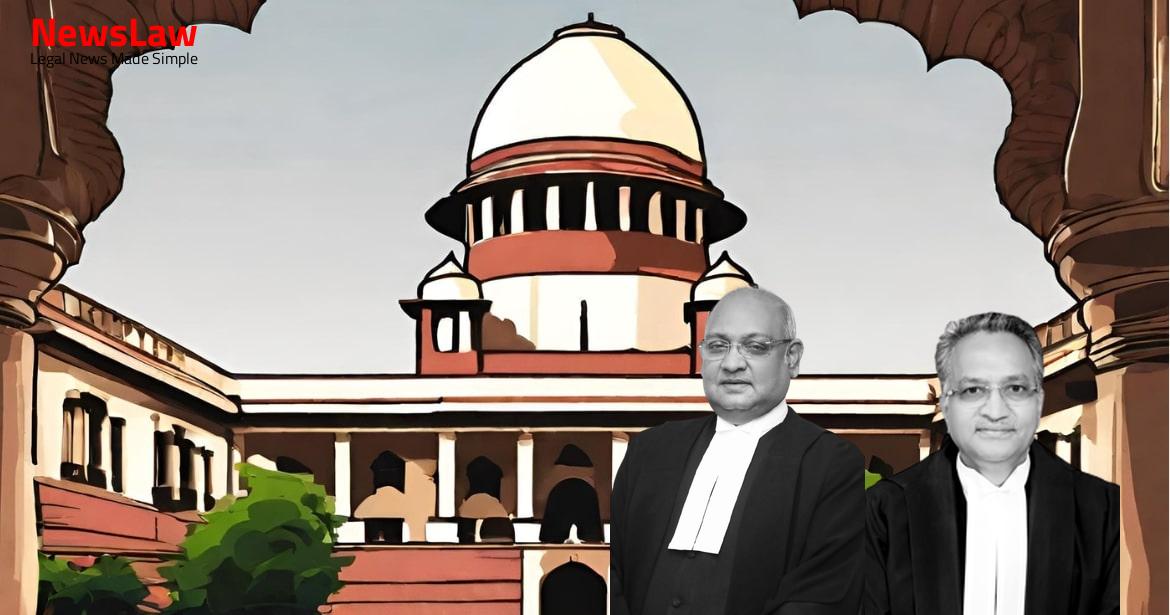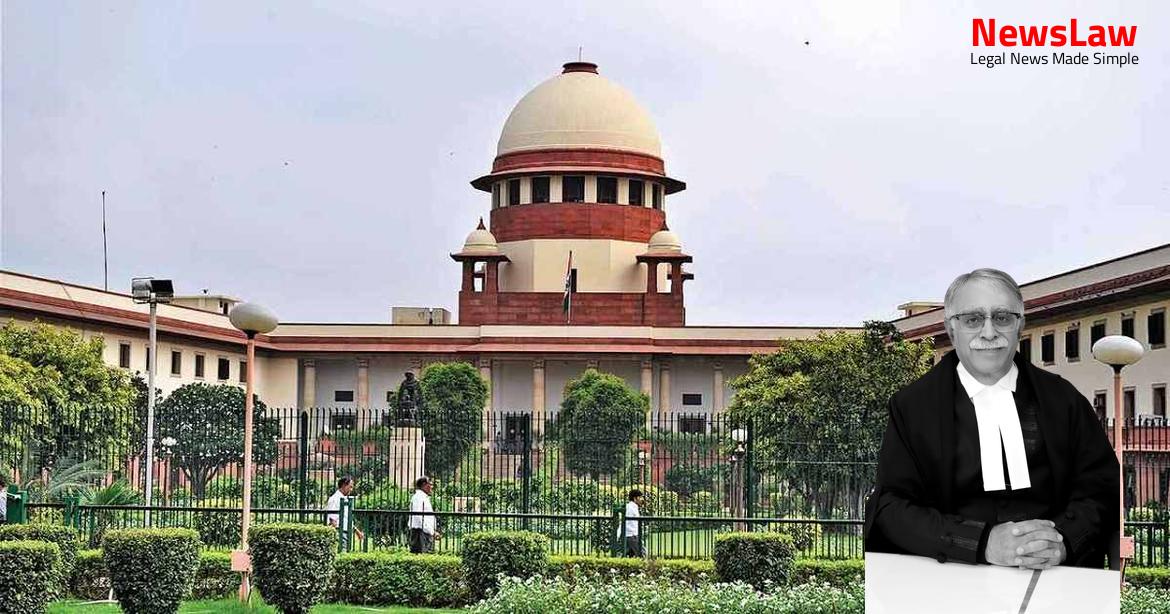Delve into the nuances of legal analysis conducted by the High Court in a significant state prosecution case. This case delves into the complexities of procedural fairness and the delicate balance between state prosecution and the rights of the accused. Stay tuned to unravel the insightful court discussions on this crucial matter.
Facts
- The High Court directed the Director of Vigilance and Anti-Corruption to produce the enquiry report in a sealed cover before the next hearing.
- Allegations against the appellant include misuse of power to influence tender processes and favoring close aides.
- Respondent No.1 filed a writ petition seeking a mandamus to register an FIR and constitute an SIT for investigation.
- The State initially relied on a CAG report but later recanted from its position.
- The State Government submitted that no cognizable offense was found after following due process.
- The High Court ordered monitoring of the preliminary enquiry by Ms. Ponni, IPS, and the Director of Vigilance and Anti-Corruption.
- Various petitions and applications were filed, and the High Court passed multiple orders based on submissions and developments in the case.
Also Read: Balancing Power and Transparency: Electoral Bonds Struck Down, Disclosure Mandated
Arguments
- The FIRs cannot be lodged solely on the basis of the CAG report.
- The appellant should have been given an opportunity to counter the allegations before an FIR was registered.
- The State should not have registered the FIR hastily based on general observations by the High Court.
- The case is seen as regime revenge due to a change in political dispensation.
- The appellant is entitled to access the preliminary report in the present circumstances.
- The accused will be provided with the relied upon documents at the time of framing charges for legal recourse.
- In Re: Criminal Trials Guidelines Regarding Inadequacies and Deficiencies v. State of Andhra Pradesh & Others, (2021) 10 SCC 598 was cited by the accused to emphasize entitlement to seek documents only under Section 207 of the CrPC.
- The appellant’s counsel argued that the subsequent FIR was a result of judicial interference, distinguishing it from the present case.
- The State’s contention, typically valid, is based on the accused’s entitlement to all prosecution-relied documents after the Magistrate’s cognizance under Section 207 of the CrPC.
- However, this case’s circumstances, particularly the judicial interference leading to the subsequent FIR, distinguish it from the norm.
Also Read: Recall of Resolution Plan Approval: Legal Analysis
Analysis
- The High Court left the decision entirely to the State Government, which is against legal principles.
- The State government changed its stance on closing the criminal case, causing confusion in the proceedings.
- The appellant was not given a chance to defend himself against the sudden change in the State’s position.
- The State submitted that further investigation was needed, contradicting their previous affidavit.
- Despite initial exoneration, the State decided to pursue action against the appellant, leading to legal complications.
- The High Court failed to properly review the preliminary report before the State altered its course of action.
- The High Court’s decision to close the case prematurely was an error, as the investigation needed to run its course.
- The appellant’s request for a copy of the preliminary enquiry report was denied by the High Court, hampering the defense’s access to crucial information.
- The FIR was registered based on a new investigation prompted by a CAG report, not solely on the preliminary report submitted earlier.
- A plea to quash the subsequent FIR was not pursued by the appellant’s counsel.
- The High Court’s failure to conclude the matter appropriately was deemed a mistake.
- The mandate of Section 207 of CrPC should not violate the rights of the appellant-accused or principles of natural justice.
- Prosecution by the State should be in line with the right to fair trial under Article 21 of the Constitution.
- If the State has not pleaded any privilege to bar disclosure of material from preliminary investigation, there is no reason for the report to remain sealed.
Decision
- Appellant granted liberty to seek appropriate remedy before the High Court for quashing of FIR.
- High Court directed to supply a copy of the report and other documents to the appellant.
- Writ Petition No 34845 of 2018 and Crl. O.P. No 23428 of 2018 restored on the file of the High Court of Madras.
- Appeal is disposed of based on the above terms.
Case Title: S. P. VELUMANI Vs. ARAPPOR IYAKKAM (2022 INSC 623)
Case Number: Crl.A. No.-000867-000867 / 2022



